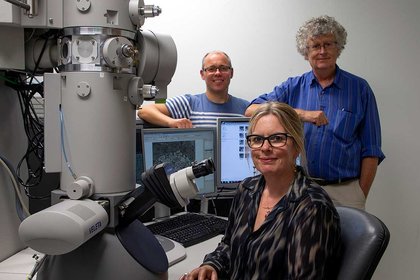
Two Massey projects have received a combined $300,000 to study the mental health of Māori women and a new model for studying cancer biology and regenerative medicine.
Dr Natasha Tassell-Matamua, of the School of Psychology, and a team from the School of Fundamental Sciences, were two of the fifteen projects to be granted funding. Each will receive $150,000 as part of the Health Research Council of New Zealand (HRC) Explorer Grants.
The Explorer Grant scheme seeks to attract and fund transformative research ideas with the potential for major impact on healthcare.
Interpretation of anomalous experiences: Implications for wāhine Māori
An indigenous framework to assess mental health diagnoses is at the centre of this study to determine why a disproportionate number of Māori women are diagnosed with mental illness.
Principal investigator for the two-year study, Dr Natasha Tassell-Matamua, is leading a research team of four Māori women - three clinical psychologists and one professional clinician - from the School of Psychology for the study, entitled Interpretation of anomalous experiences: Implications for wāhine Māori.
The team will create a series of hypothetical case studies – based on real world examples – that could be interpreted as abnormal from a clinical psychology perspective, or as extraordinary or unusual from a lay perspective. They will present the case studies to both Māori and non-Māori women to see how they interpret the experiences in the case studies.
Dr Tassell-Matamua says the team will focus on the Māori concept of pūrākau – meaning ‘incredible stories’ such as myths and legends, or what might be deemed spiritual experiences – as a way of introducing a cultural dimension into mental health. Her hope is that it may offer a more accurate way to understand the experiences of Māori women within the mental health system and potentially identify those who may not be getting the appropriate help.
Transforming the paradigm of functional genome organisation
The study team, comprised of Dr Tracy Hale, Associate Professor Vyacheslav Filichev and Professor Geoff Jameson, aim to explore the development of a new molecular model that may transform studies in areas such as cancer biology and regenerative medicine.
Dr Hale says, “Heterochromatin Protein 1α (HP1α) is a major architectural protein that organises the genome into highly compact domains of heterochromatin, preventing access to certain genomic locations. Maintaining this organisation is essential for normal cellular function, as its disruption is implicated in cancer and ageing. However, the current paradigm of genome organisation is still primitive as it does not address the existence of non-canonical DNA structures.
“We hypothesise that the interaction of HP1α with non-canonical DNA structures is a key determinant of heterochromatin architecture, and will employ structurally sensitive techniques to propose a new molecular model of heterochromatin formation.”